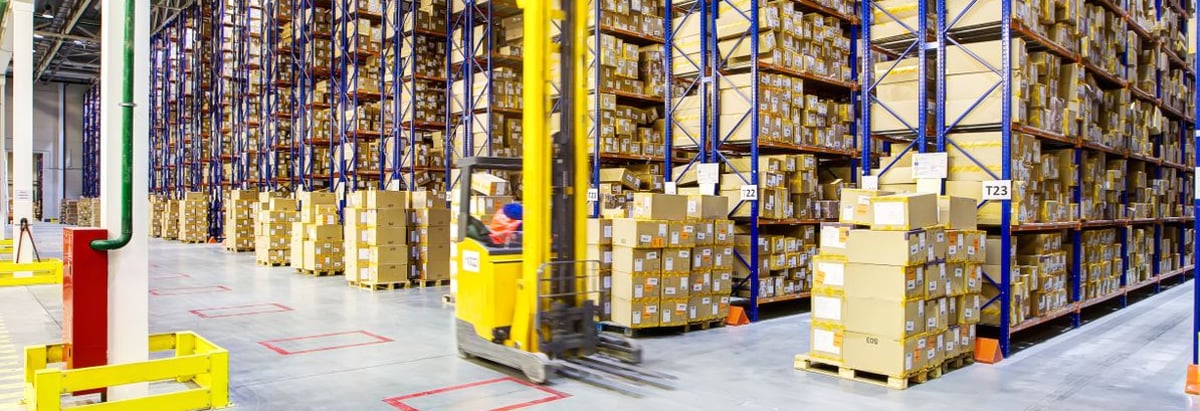
For K&K Herbal Poland SA.’s (WSE:KKH) shareholders, and also potential investors in the stock, understanding how the stock’s risk and return characteristics can impact your portfolio is important. There are two types of risks that affect the market value of a listed company such as KKH. The first risk to think about is company-specific, which can be diversified away by investing in other companies in order to lower your exposure to one particular stock. The other type of risk, which cannot be diversified away, is market risk. Every stock in the market is exposed to this risk, which arises from macroeconomic factors such as economic growth and geo-political tussles just to name a few.
Not all stocks are expose to the same level of market risk. A popular measure of market risk for a stock is its beta, and the market as a whole represents a beta value of one. A stock with a beta greater than one is expected to exhibit higher volatility resulting from market-wide shocks compared to one with a beta below one.
See our latest analysis for K&K Herbal PolandWhat is KKH’s market risk?
K&K Herbal Poland's beta of 0.97 indicates that the stock value will be less variable compared to the whole stock market. This means that the change in KKH's value, whether it goes up or down, will be of a smaller degree than the change in value of the entire stock market index. Based on this beta value, KKH appears to be a stock that an investor with a high-beta portfolio would look for to reduce risk exposure to the market.
Does KKH's size and industry impact the expected beta?
KKH, with its market capitalisation of ZŁ971.14K, is a small-cap stock, which generally have higher beta than similar companies of larger size. Moreover, KKH’s industry, retail distributors, is considered to be cyclical, which means it is more volatile than the market over the economic cycle. Therefore, investors may expect high beta associated with small companies, as well as those operating in the retail distributors industry, relative to those more well-established firms in a more defensive industry. It seems as though there is an inconsistency in risks portrayed by KKH’s size and industry relative to its actual beta value. There may be a more fundamental driver which can explain this inconsistency, which we will examine below.
How KKH's assets could affect its beta
An asset-heavy company tends to have a higher beta because the risk associated with running fixed assets during a downturn is highly expensive. I examine KKH’s ratio of fixed assets to total assets to see whether the company is highly exposed to the risk of this type of constraint. Considering fixed assets account for less than a third of the company's overall assets, KKH seems to have a smaller dependency on fixed costs to generate revenue. Thus, we can expect KKH to be more stable in the face of market movements, relative to its peers of similar size but with a higher portion of fixed assets on their books. Similarly, KKH’s beta value conveys the same message.
What this means for you:
You may reap the benefit of muted movements during times of economic decline by holding onto KKH. Its low fixed cost also means that, in terms of operating leverage, its costs are relatively malleable to preserve margins. In order to fully understand whether KKH is a good investment for you, we also need to consider important company-specific fundamentals such as K&K Herbal Poland’s financial health and performance track record. I urge you to complete your research by taking a look at the following:
- Financial Health: Is KKH’s operations financially sustainable? Balance sheets can be hard to analyze, which is why we’ve done it for you. Check out our financial health checks here.
- Past Track Record: Has KKH been consistently performing well irrespective of the ups and downs in the market? Go into more detail in the past performance analysis and take a look at the free visual representations of KKH's historicals for more clarity.
- Other High-Performing Stocks: Are there other stocks that provide better prospects with proven track records? Explore our free list of these great stocks here.
Valuation is complex, but we're here to simplify it.
Discover if True Games Syndicate might be undervalued or overvalued with our detailed analysis, featuring fair value estimates, potential risks, dividends, insider trades, and its financial condition.
Access Free AnalysisHave feedback on this article? Concerned about the content? Get in touch with us directly. Alternatively, email editorial-team@simplywallst.com
Simply Wall St analyst Simply Wall St and Simply Wall St have no position in any of the companies mentioned. This article is general in nature. We provide commentary based on historical data and analyst forecasts only using an unbiased methodology and our articles are not intended to be financial advice. It does not constitute a recommendation to buy or sell any stock and does not take account of your objectives, or your financial situation. We aim to bring you long-term focused analysis driven by fundamental data. Note that our analysis may not factor in the latest price-sensitive company announcements or qualitative material.
About WSE:TGS
True Games Syndicate
Engages in the development and publishing of computer games in Poland.
Moderate and slightly overvalued.
Market Insights
Community Narratives



